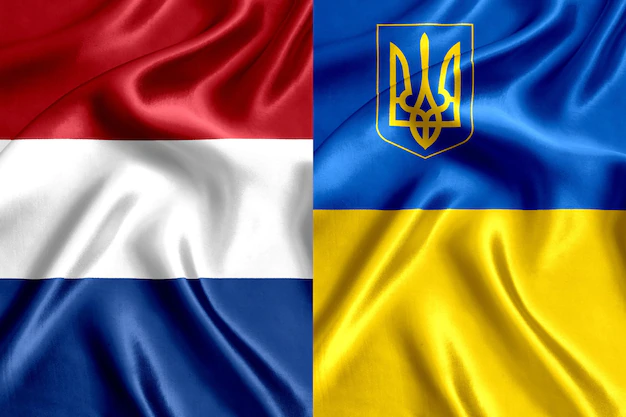Ukrainians in the Netherlands are one of the ethnic communities in the Netherlands, formed during several historical periods. According to unofficial data, there are about 5,000 Ukrainians in the Netherlands.
As a result of significant migration processes in the 50s and 60s of the 20th century, the historically mononational Dutch society today has many representatives of other nationalities originating from the countries of the Middle East, Africa and Eastern Europe. However, largely due to the tolerant national policy of the Netherlands and the country’s high economic development, representatives of these population groups have never raised claims for any national-cultural separation. This situation also applies to the Ukrainian diaspora in the Netherlands, in the course of whose development the need to ensure certain rights associated with the status of a national minority never arose.
The 1950s and 1960s were a period of intensification of efforts aimed at uniting and organizing the Ukrainian community in the Netherlands, which culminated in the creation of a single organization called the Union of Ukrainians of the Netherlands, which is currently managed by Professor Omelyan Kushpet . The purpose of this association was to support ties between Ukrainians and hold joint cultural events. Subsequently, the activity of this organization gradually faded away, which was connected with the aging of its active members. Today, the affairs of the Ukrainian community are conducted only by individuals who continue them mostly independently.
The bulk of the new diaspora in Belgium and the Netherlands is, as a rule, young people who came to this country in the early 1990s to study or work. Unlike the post-war diaspora, the new diaspora maintains much closer ties with relatives and acquaintances in Ukraine and, for the most part, a more objective and complete understanding of the situation in Ukraine. This category of people is a layer of economically active people who (or their family members from among Belgians, Dutch and Luxembourgers) occupy important niches in the socio-economic life of the country. In the future, this may give them the opportunity to form a diaspora that will help to more effectively promote the interests of Ukraine in the political, economic, scientific, and cultural spheres.
Today, the Ukrainian diaspora in the Netherlands organizes informational evenings where documentaries about the history of Ukraine are shown, political scientists, historians and other specialists are invited. On the day when Ivan Kupala is celebrated, the community gathers by the sea, lights a bonfire and plays various entertainments that are characteristic of the celebration in Ukraine. This year, due to weather conditions, they gathered at the festival in The Hague, where a bandurist from the Austrian diaspora was invited and presented the Kobzar art of singing to the people of the Netherlands. Every year, the diaspora gathers for St. Andrew’s Eve.
The participation of Ukrainians at Culture Festivals, where Ukrainian dishes are always prepared, is mandatory. The Dutch are willing to join events if the diaspora makes them open.
According to Oleksandr Tomaschuk (an active member of the local community and a researcher at Philips and a doctoral student at the Catholic University of Leuven ), Ukrainians who come to live in the Netherlands are divided into three categories:
- wage earners who come for seasonal work, and therefore are not very interested in diaspora issues and public activity;
- highly qualified migrants who come to diaspora events, it is on them that all the activities of the community are based;
- students who are less active because of their studies, however, always find time to pay attention to their community.
The creation of a strong, powerful Ukrainian community in the Netherlands, according to Oleksandr, is the key to collective success and the spread of Ukrainian culture outside of Ukraine. An example of a successful association in the Netherlands is the Turkish diaspora, which is already at the level where it can advocate its interests in state institutions.
Ukrainians plan to develop their community, develop Ukrainian culture in migration and preserve national identity.

